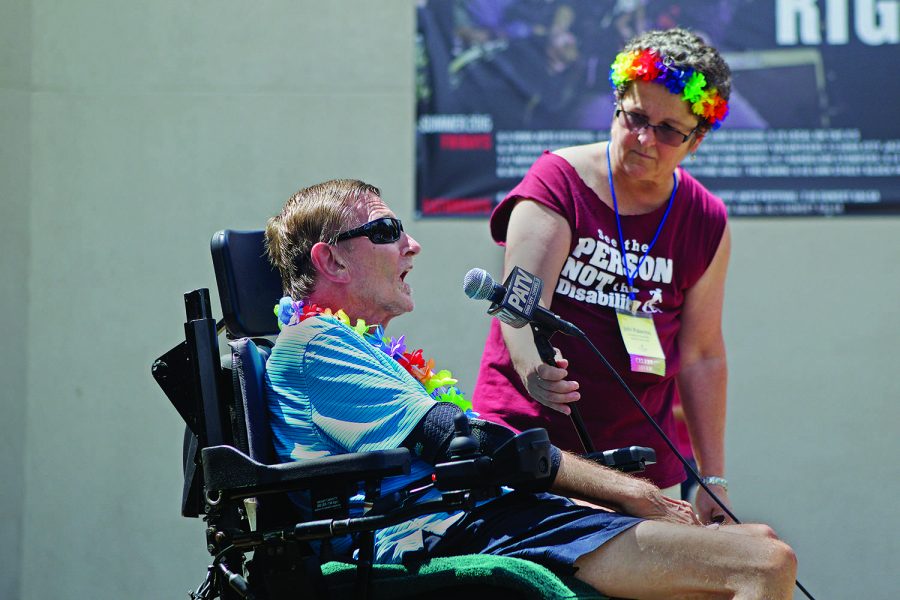Hannah Soyer
hannah-soyer@uiowa.edu
When I was a senior in high school, I wrote a letter to singer/songwriter Matt Nathanson asking him to go to prom with me. He didn’t, but I did get to meet him after a show and hang out. Did the fact that I was in a wheelchair help this to happen? Maybe. I don’t know.
I do know that as we were leaving the little patch of dirt at the Iowa State Fair where Matt’s tour bus was parked, my dad turned to me and said, “I’ve always liked Matt, but now I have a new respect for him.” This bothered me slightly. Should Matt receive new respect because he’d reached out to one of his fans? Sure. But I wasn’t entirely sure the new respect wasn’t because he had reached out to one of his fans that was in a wheelchair. And this seemed like a pretty lame reason to give someone brownie points.
Recently, a photo of a boy helping another boy in a wheelchair became viral on Facebook. The boy in a wheelchair is Kaden Myers, who happens to have SMA Type II, the same disease that I have. The general response to this photo was that the boy helping Kaden was to be seen as some sort of hero. In fact, when Katie Myers, Kaden’s mom, was interviewed by Fox News about this incident, the segment was titled “Mom thanks mystery boy for playing with disabled son.”
The way that Katie handled the interview was perfect, however, and helped to redirect the image of this mystery boy as a hero to what he is just a decent human being, doing what all decent human beings should do. When asked what she wanted to tell the mystery boy and other children out there, Katie responded, “I just want him to know that the way he treated my son is the way I wish everyone would treat him. That they would see him first before seeing his wheelchair.”
There seems to be a general consensus that if someone is being nice to someone with a disability, they somehow receive brownie points, and are seen as such a great person. But when we view this situation in that way, we are automatically treating the person with a disability differently than we would be treating someone without a disability. In our mind, consciously or subconsciously, we are assigning them to the “other” category, a category of social outcasts who should, in some way or another, receive special treatment.
And so, when we see someone “going out of their way” to be nice to someone with a disability, because this person with the disability is seen as an “other” in our mind, we think, “Oh, that’s so sweet, that person is being nice to someone in a wheelchair (or any other type of disability). He or she must be a great human being.” But can you imagine thinking the same thing if you saw an able-bodied person pick up the pencil their able-bodied classmate had dropped? Not likely. You might briefly acknowledge in your mind that that was a nice thing to do, but you’d probably also just see it as something that every decent human being would do.
Kindness should definitely be encouraged and applauded in all situations, but when someone is suddenly put on a pedestal for being kind to someone with a disability, this dehumanizes the person with a disability because they are being put into this category of “other.” Katie Myers got it right when she told the Fox anchorwoman, “He [Kaden] may have SMA, but SMA will absolutely never define him.”



